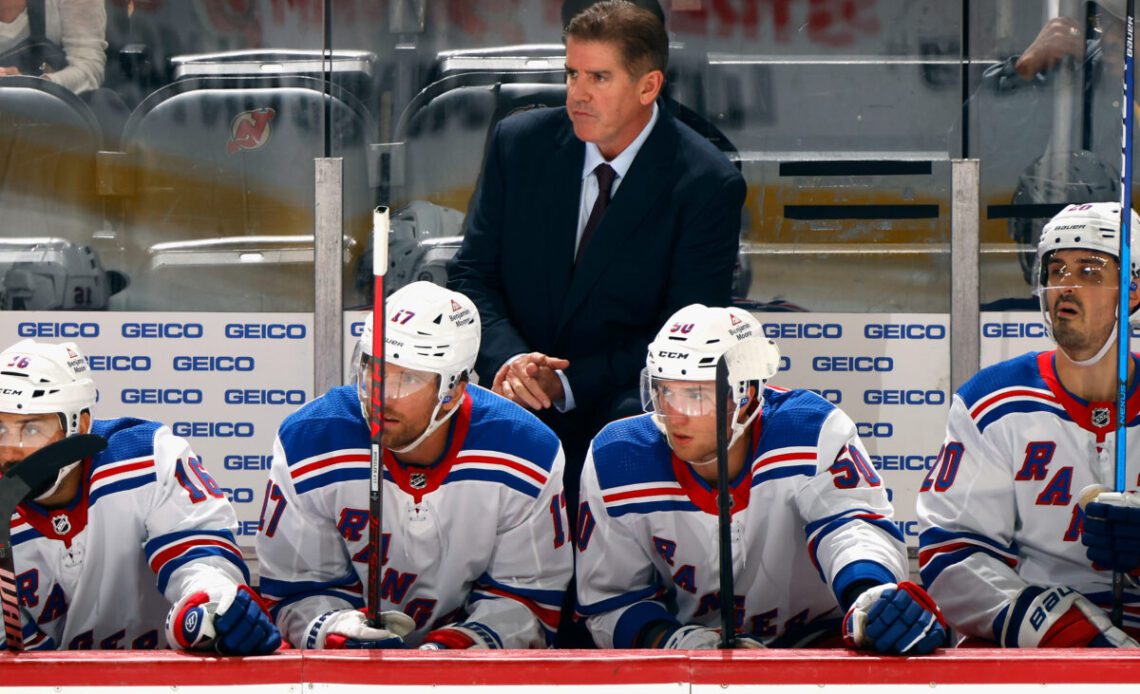To begin the 2023-24 NHL season, the New York Rangers were a formidable force in special teams performance. As it stands, their power play efficiency is an impressive 28.7 percent, ranking them second in the league. Meanwhile, their penalty kill success rate is 82.2 percent, placing them ninth. This combination has positioned the Rangers tied for third in the league with a combined special teams percentage of 110.9 percent.
However, a closer examination of the Rangers’ special teams reveals a recent dip in their effectiveness. In the first 20 games of the season, they boasted a remarkable power play success rate of 30.2 percent and an 86.2 percent rate of killing penalties, contributing to their strong 15-4-1 start. After their Nov. 27 game against the Buffalo Sabres, these numbers have taken a turn for the worse.
Over the next 24 games, while their power play percentage remained strong at 27.4 percent, their penalty kill rate dropped to 78.1 percent, which is below the league average of 79.4 percent. This decline in special teams performance played a part in their less successful 13-10-1 record in this period. This trend is even more noticeable in their last 10 games, as the Rangers’ power play effectiveness was 21.4 percent, and their penalty kill rate was 69.2 percent. This downturn in special teams performance has played a part in their 4-5-1 record over their last ten games. Clearly, the Rangers’ special teams success plays a huge part in their success as a team.
This downturn, to a more realistic power play, showcases how the Rangers’ elite unit on the man advantage masks the team’s key issues: a proclivity for poor defensive marking and reliance on stellar goaltending. If the Rangers are going to be a team that relies on their power play, they need to be a team with two strong units, as two strong units protect against the natural volatility that comes with the nature of power plays. The perfect example of this is the last ten games, where the Rangers’ power play has struggled, and as a result, the entire team has struggled. If they have two power play units, then one can still be scoring while the other is struggling.
Restructuring the Rangers’ Power Play: Embracing Change
The Rangers have predominantly relied on a singular power play unit since the 2020-21 season. During the 2020-21 and 2021-22 seasons, this unit comprised Artemi Panarin, Mika…
Click Here to Read the Full Original Article at The Hockey Writers…


